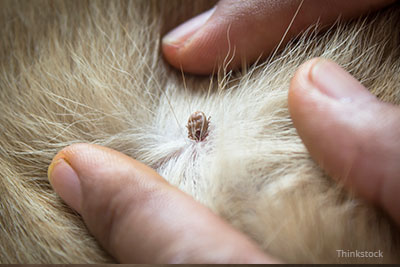Even with the careful removal of a tick, it is very common for a mouth part (or even entire head) to remain when a tick is extracted.
While we want to avoid having the tick’s mouth left in the skin, it is sometimes unavoidable. When the mouth is left in, it’s hardly the end of the world. The potential for disease transmission at this point is minimal. The body will wall off the foreign material and, in a few days, it will dissolve. The only other problem that might occur is the foreign body reaction that could also occur from a thorn or splinter. Although the embedded head does not always increase risk of infections, one must treat it in the same way, as one would a splinter. What not to do if a tick’s head gets stuck in your dog
What not to do if a tick’s head gets stuck in your dog
Perhaps just as important as what to do if a tick’s head gets stuck in your dog is what not to do. This advice is very similar to what may be recommended for people, according to tickbites.net. Never dig around in the skin to remove the remainder of the tick, as this can actually increase the risk of skin infections. Instead, it’s best to let nature take its course. Your dog’s body will expel the tick out naturally by itself.
How to prevent infection
To avoid the possibility of infection, apply an antibiotic ointment, as directed.
How will I know if there’s a problem?
Remember to watch the area for the development of a rash or irritation and be sure to see your veterinarian right away if a rash develops at the site.
If you’re concerned about the possibility of tick-borne disease, follow these links to learn more about the symptoms of:
Also, see the common tick diseases in your area.
Preventing future ticks
If you’ve just pulled a tick off of your dog, you might be wondering how you can avoid it in the future. While nothing can be 100% effective, The Companion Animal Parasite Council says, the most important thing to do to prevent ticks is to use a combination flea and tick control agent, according to your veterinarian’s instructions, all year round.
If you have any questions or concerns, you should always visit or call your veterinarian -- they are your best resource to ensure the health and well-being of your pets.
